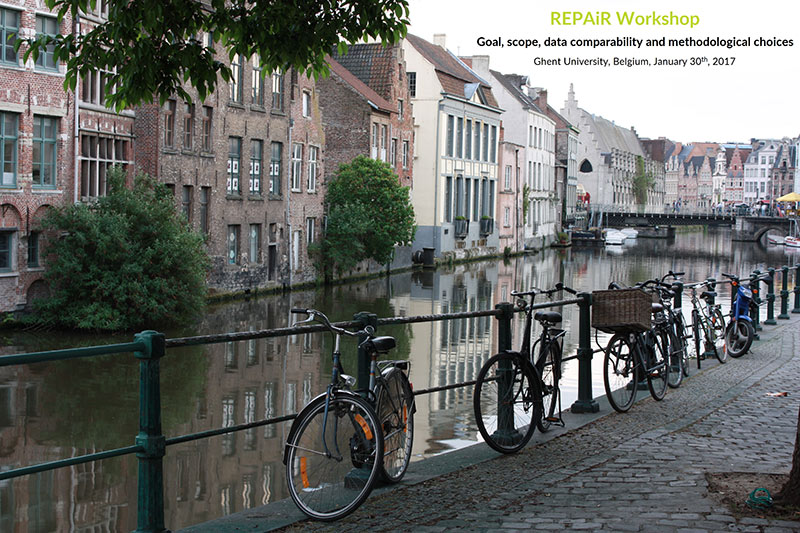In order to discuss WP3 and WP4 issues, REPAiR team from the Ghent University has organized a workshop in Ghent, Belgium on January 30th, 2017.
During the fruitful kick-off meeting of REPAiR in Amsterdam and Delft the 3rd and 4th of November 2016, we were able to identify some primary challenges (e.g. related to methodological choices, data-availability issues, different interpretations of modelling processes/flows, etc. ) which are related to, amongst others, WP3 and WP4. In order to face these challenges in a constructive and goal-oriented way to be able to proceed with the project deliverables and activities in time, a workshop has been organized specifically related to key aspects of WP3 and WP4.
All WP leaders & all members assigned to WP3/WP4 were invited, including the PULL leaders. 18 participants representing 9 institutions were present.
The following aspects were discussed:
Goal and scope
- Boundaries: geographical boundaries of peri-urban areas vs. MFA boundaries vs. LCA boundaries;
- Circular economy: within peri-urban spatial boundaries or at the process chain level?
- Systematic framework to connect all WP3/WP4 tasks;
- Functional unit a PULL case study? Comparable between the cases?
- Time factor?
- Possibility for integration?
Data inventory
- MFA: data collection at which level?
- What kind of data (energy, materials, emissions, social, economic, spatial…)?
- Availability and quality of data? Dynamic?
- Also background data and data related to the indicators.
Elements of the sustainability framework
- Local versus global impacts: which ones are relevant for the project? Clear definition needed.
- Identification of local and global indicators and development of selection criteria.
- Cause-effect chains of state indicators, effect on which AoP?
- Streamlining social, environmental, economic and spatial approaches (to what extent? weighting? normalization? Stakeholder input?)
- How should the final sustainability results look like (input for GDSE)




